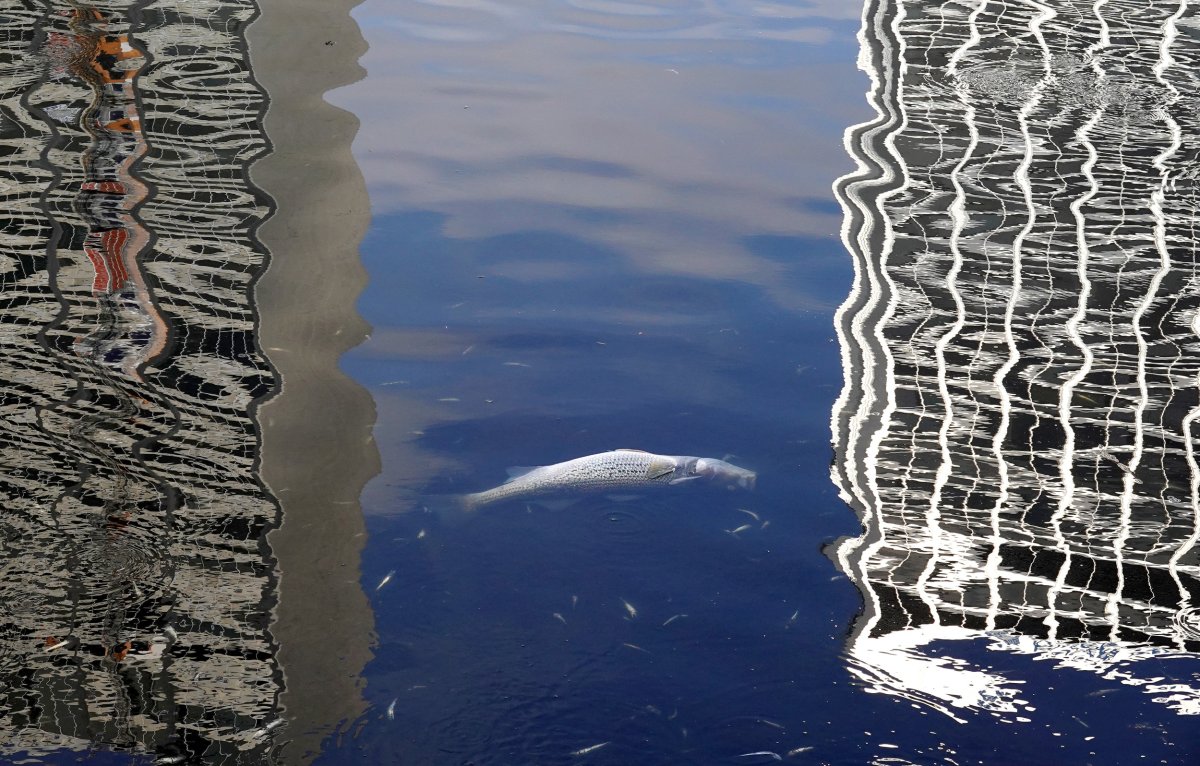Officials are conducting tests at a drinking water reservoir in California, after dead fish were found floating there.
The Lake Elsinore & San Jacinto Watersheds Authority (LESJWA) announced on Wednesday evening it had launched an investigation into oxygen levels at Canyon Lake. The reservoir, in southern California, has historically suffered from algae blooms, which can cause environmental concerns, according to the LESJWA website.
"A fish die-off, is one of the first visible signs of environmental stress when dead fish are found floating on the surface of water or washed up on the shore," a statement said. "The most common cause of a fish die-off is the depletion of dissolved oxygen in a body of water."
There was no mention of whether the fish die-off or presence of algae could potentially impact the quality of the drinking water.
Newsweek reached out to the LESJWA by phone for comment.

"Fish kills are caused by naturally occurring conditions including algae, weather, low lake levels and abundance of carp/shad," the statement added.
"Phosphorus and nitrogen flows into Canyon Lake from the San Jacinto Watershed; algae use these nutrients to grow. Like all green plants, algae produce oxygen during the daylight hours as a by-product of photosynthesis.
"However, when light levels drop, water temperature increases or nutrients are used up, the algae release carbon dioxide and stop releasing oxygen. Soon they begin to consume more oxygen than they release.
"This can also result in algae bloom die-off, leading to bacterial decomposition and lower oxygen levels in the lake and suffocating the fish."
Canyon Lake is susceptible to algae blooms because it is located at the end of a watershed, according to the LESJWA website. This means the lake is exposed to high levels of nutrients from water run-off upstream, including phosphorus and nitrogen, which algae consumes.
"These nutrients encourage algae growth," said the lake's website.
Water officials add alum, a chemical compound, to the water to combat the growth.
"By adding alum to the water, it immediately binds to the phosphorus, causing it to neutralize and become inactive. The alum process was chosen as a means to improve lake quality due to its proven effectiveness in lakes throughout the country," the website said.
"LESJWA has been responsible for organizing the alum treatments, which have proven to be successful in minimizing algae growth."
Uncommon Knowledge
Newsweek is committed to challenging conventional wisdom and finding connections in the search for common ground.
Newsweek is committed to challenging conventional wisdom and finding connections in the search for common ground.
About the writer
Anna Skinner is a Newsweek senior reporter based in Indianapolis. Her focus is reporting on the climate, environment and weather ... Read more
To read how Newsweek uses AI as a newsroom tool, Click here.








